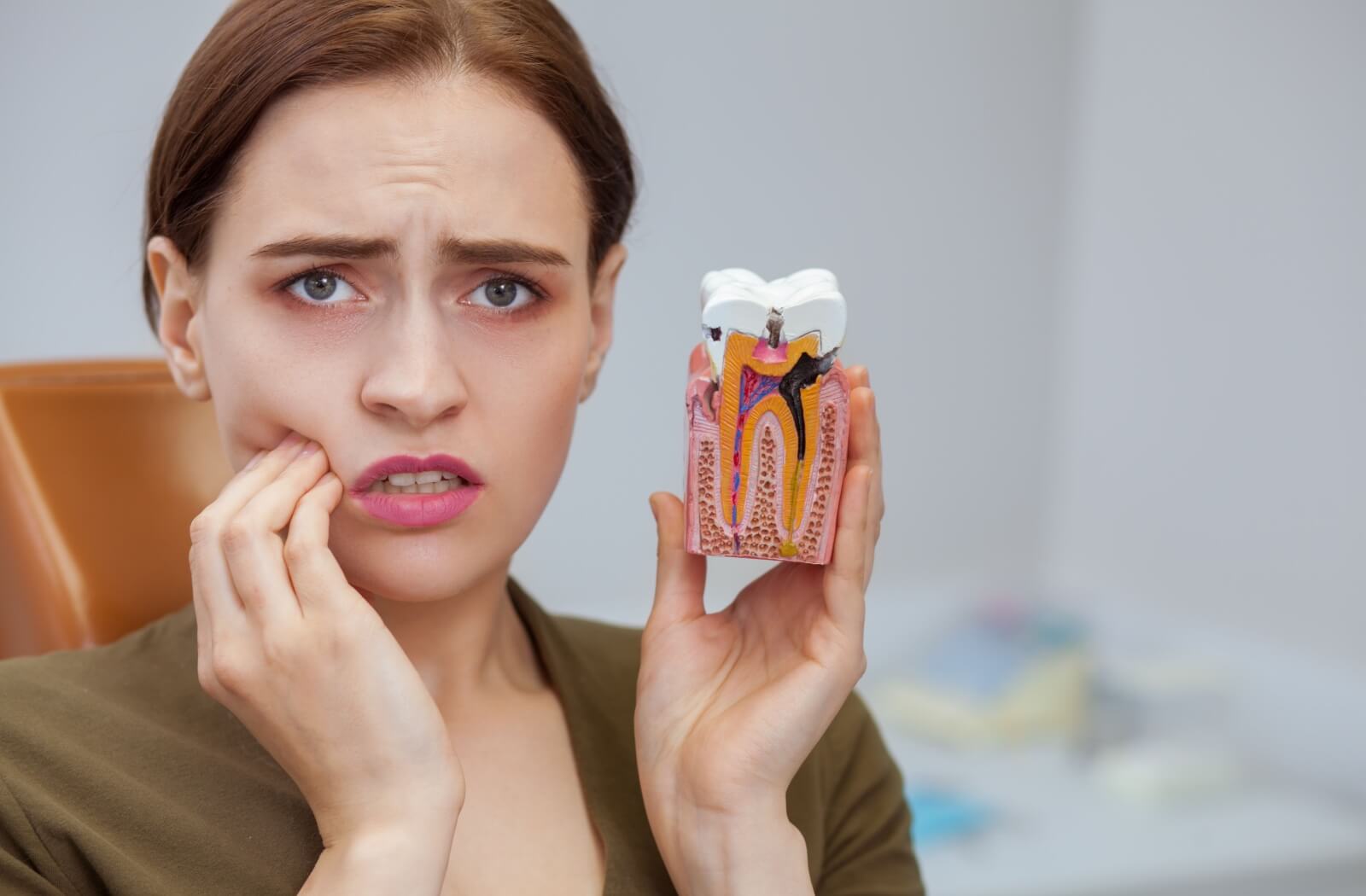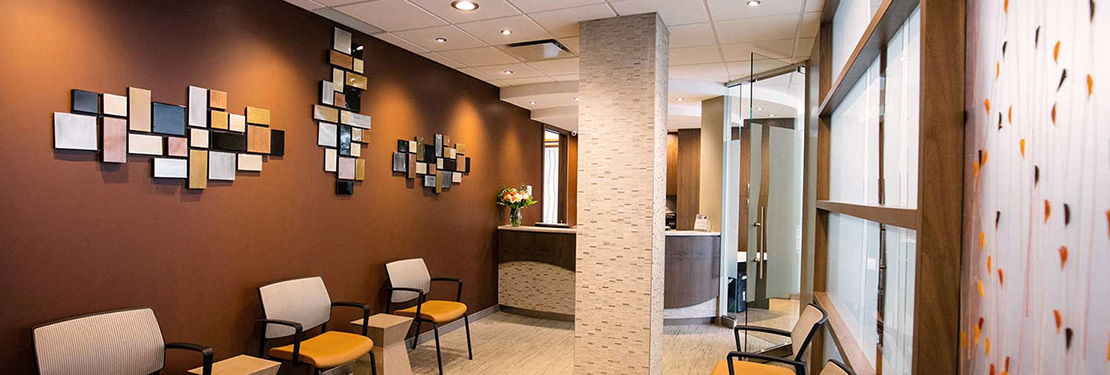Cavities are little holes in your teeth that can develop from tooth decay. They are caused by bacteria in your mouth that produce acids that eat away at the enamel, or outer layer, of your teeth. These holes can become larger if left untreated and eventually lead to a tooth infection or even tooth loss.
Cavities can’t pass directly from one person to another, like a cold or flu virus. However, the bacteria that cause cavities can be spread through saliva, making it possible for someone else to develop cavities.
The good news is that cavities can be treated to prevent them from getting bigger. Even better yet, they’re easily preventable with proper dental hygiene, lifestyle, and behavioural habits.
What Is a Cavity?
A cavity is a permanently damaged area in the hard surface of your teeth (enamel) that develops into tiny holes. The bacteria in our mouths produce acids that erode the enamel, creating these holes. These bacteria live in plaque, a sticky film formed by leftover food particles and saliva.
If plaque is left on your teeth for too long, it can harden and turn into tartar, which is even more difficult to remove, allowing the bacteria to continue producing acids and damaging your tooth enamel. As this process continues, the cavity becomes larger and deeper, eventually leading to pain and discomfort.
A common misconception about cavities is that they solely result from improper dental hygiene. While hygiene plays a significant role, cavities can result from diet, genetic predisposition, and certain conditions, like dry mouth.
Signs of a cavity can include:
- Noticeable holes in the tooth
- Pits in the tooth
- Consistent toothache
- Tooth sensitivity
Cavities form over several stages:
- Initial demineralization: Enamel is the hardest tissue in the body and is made from minerals. However, acid produced by bacteria in plaque can eat away at the enamel and cause mineral loss, the first sign of tooth decay.
- Enamel decay: As the enamel continues to weaken, a cavity or small hole can form in the tooth.
- Dentin decay: When decay reaches the dentin, the softer tissue under the enamel with tubes that lead to nerves in the tooth, it can progress faster and cause tooth sensitivity.
- Pulp damage: Pulp is the innermost part of the tooth, containing blood vessels and nerves. When decay reaches the pulp, it can cause irritation, swelling, and tooth pain.
- Abscess: Further tooth decay and damage can cause infection, inflammation, and pus. Symptoms can include severe pain, gum swelling, and fever.
How Are Cavities Contagious?
Millions of tiny bacteria live in everyone’s mouth, but there’s one kind called Streptococcus mutans that loves sugar and can cause cavities. These cavity bugs can spread through saliva, like when you share food, drinks, or kiss someone.
So, while cavities can be kind of contagious, it’s not like catching a cold because:
- Not everyone gets them:The number of cavity bacteria you get depends on how much you share spit and how healthy your mouth is.
- Your mouth matters: Your mouth needs to be the perfect home for these bugs to thrive and cause trouble.
- Brushing helps: Brushing and flossing get rid of leftover food and plaque, making it harder for cavity bugs to stick around.
How Are Cavities Treated?
If cavities are ignored, they can gradually grow larger, potentially causing discomfort or pain. The damage can sometimes become so severe that the tooth fractures or needs to be extracted.
Dentists are equipped with tools to combat cavities. Your dentist will look for signs of cavities and other oral health issues during a routine checkup. If they detect a cavity, they can use a filling to fix it.
Fillings are like a patch for your tooth, effectively plugging the hole and preventing further decay. Some fillings, like composite fillings, bond to the tooth itself, minimizing the amount of healthy tooth structure that needs to be removed.
However, a filling might not be enough if the cavity has progressed significantly. In these situations, a crown might be recommended. A crown is a custom-made cap for your tooth that acts as a protective covering, restoring the tooth’s strength and functionality.
How to Prevent Cavities

There are many things you can do to prevent cavities from forming:
- Brush twice a day with fluoride toothpaste.
- Floss daily to remove plaque and food particles between teeth.
- Limit sugary and acidic foods, as they can contribute to decay.
- Drink plenty of water throughout the day to rinse away bacteria and food debris.
- Visit your dentist regularly for cleanings and checkups. They can catch cavities early on and treat them before they become larger issues.
Fighting cavities isn’t just about protecting yourself. It’s about protecting others, too:
- Avoid sharing items like utensils and cups since they can transfer cavity-causing bacteria. Use your own straw and toothbrush.
- If you have younger siblings or children or care for others, set a good example by practicing good oral hygiene.
- Limit sugary snacks and drinks, and choose healthy options that keep your smile strong. The food you eat can affect your teeth.
Cavity Detection & Prevention
It’s essential to have the correct information about how cavities can spread and how to prevent them. By maintaining good oral hygiene and being mindful of potential sources of bacteria, you can reduce the risk of cavities and of spreading them to others. If you notice signs of a cavity or symptoms such as tooth pain or sensitivity, book an appointment with Ti Dental for a dental evaluation of your teeth and gums.








